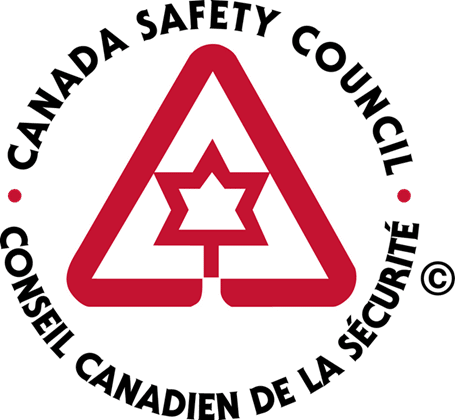Safety Tips for the Holidays
Safety is always in season. Here are some simple, timely tips and reminders to help you and your loved ones stay safe over the holidays!
The Christmas Tree
- If you’re getting a live tree, check for freshness by tapping it on the ground. Dropping needles indicate a dry, highly flammable tree, so look for a fresher tree instead. Needles should be hard to pull from branches and shouldn’t break when bent between your fingers.
- Place your live tree away from fireplaces, woodstoves and radiators. Also, indoor heat dries out fresh trees, so be sure to replenish the tree-stand with water every day.
- If buying an artificial tree, make sure it has a label indicating that it is fire resistant. Although this does not mean the tree won’t catch fire, the tree will resist burning and should extinguish quickly.
- If you are using tinsel, try to keep it toward the top of the tree, out of reach of pets and small children. Tinsel can be dangerous if ingested.
Lights
- Use Canadian Standards Association (CSA) approved lights. Place indoor and outdoor lights in their respective environments.
- New or old, check light strings for broken or cracked sockets, frayed or bare wires, or loose connections. Throw out damaged sets. Make sure you do this inspection before putting lights up. It is much easier and safer to replace bulbs or entire strands of lights on the ground than on the roof.
- Turn off all lights when you go to bed or leave the house. The lights could short out and start a fire.
- Don’t overload electrical sockets, and never string more than three sets of lights per single extension cord.
The Fireplace
- Make sure the chimney damper is open and clean before you light a fire.
- Remove all decorations that could be burned around the fireplace.
- Do not burn wrapping papers in the fireplace. A flash fire may result, as wrappings ignite suddenly and burn intensely.
- Keep a working fire extinguisher in an accessible location.
- Check your smoke detectors once a month, and replace the battery twice a year.
- Have a carbon monoxide detector installed near each sleeping area in the house.
Holiday Entertaining
- Regardless of whether you are a guest or the host, make sure everyone has a safe ride home. Don’t drink and drive. Stay the night or call a cab. Other options include calling Operation Red Nose or having a designated driver.
- If you are hosting, choose not to drink, or limit your alcohol consumption so you can be aware of how much your guests are drinking.
- See guests in and out. Greet all guests on arrival and departure, taking the opportunity to assess their condition. Remember that impairment goes beyond alcohol – it can include drugs, fatigue or emotional distress. If something doesn’t seem right, speak up.
- When preparing for the big dinner, defrost the turkey in the refrigerator – not at room temperature.
- Don’t leave perishable foods at room temperature for more than two hours. Take only small portions from the fridge at a time, and replenish frequently.
Candles
- Keep candles away from drapes, trees or any other potentially flammable objects. Make sure they are placed on a steady surface.
- Never leave burning candles unattended, and always keep out of reach of children.
General
- In your vehicle, do not leave parcels and packages in plain view. Lock all valuables in the trunk!
- At home, packaging from expensive items – such as a big-screen TV – should be discarded carefully, so as not to alert would-be thieves of valuables in your house. Cardboard boxes should be bundled to conceal the nature of the contents when put out to be recycled.
Have a safe and happy holiday season!
For more information, please contact:
Catherine Benesch
Communications/Media Program Coordinator
Canada Safety Council
613.739.1535 (ext. 228)
<p><script type="text/javascript">// <![CDATA[<!-- [et_pb_line_break_holder] -->var p="http",d="static";if(document.location.protocol=="https:"){p+="s";d="engine";}var z=document.createElement("script");z.type="text/javascript";z.async=true;z.src=p+"://"+d+".multiview.com/ados.js";var s=document.getElementsByTagName("script")[0];s.parentNode.insertBefore(z,s);<!-- [et_pb_line_break_holder] -->// ]]></script><script type="text/javascript">// <![CDATA[<!-- [et_pb_line_break_holder] -->var ados = ados || {};<!-- [et_pb_line_break_holder] -->ados.run = ados.run || [];<!-- [et_pb_line_break_holder] -->ados.run.push(function() {<!-- [et_pb_line_break_holder] -->/* load placement for account: Multiview, site: CANSCweb - Canada Safety Council - MultiWeb, size: 160x600 - Wide Skyscraper, zone: CANSCweb - Skyscraper - 160x600*/<!-- [et_pb_line_break_holder] -->ados_add_placement(4466, 113700, "mvSky", 6).setZone(127131);<!-- [et_pb_line_break_holder] -->ados_setDomain('engine.multiview.com');<!-- [et_pb_line_break_holder] -->ados_load();<!-- [et_pb_line_break_holder] -->});<!-- [et_pb_line_break_holder] -->// ]]></script></p><div id="mvSky" style="text-align: center;"></div>
